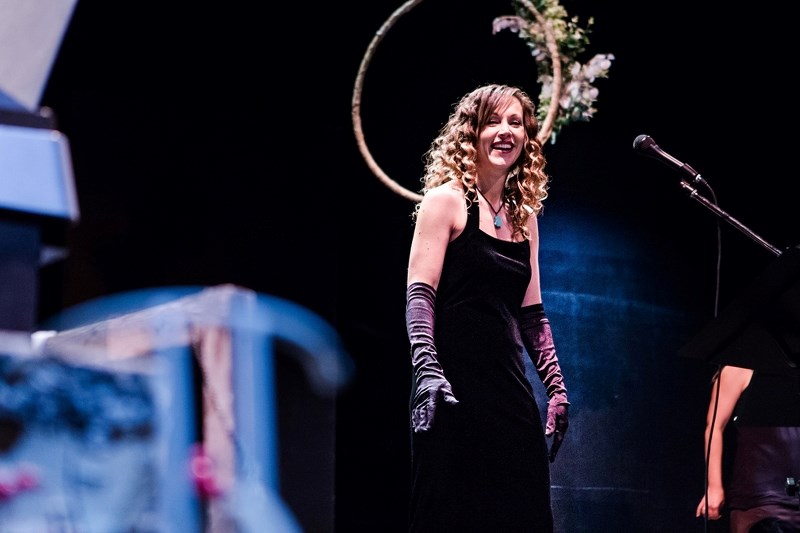Throughout the world, young boys and girls from impoverished families in countries like Nepal often end up being sold into the dark and depraved world of human slavery.
"The price is on their head even before they hit puberty," said Naomi H., organizer of the fourth annual Ladies Night Out, a fundraiser for the Servants Anonymous Foundation that features live musical performances by local artists Melony Gibbs and Christina Crouch.
Although an uncomfortable reality, she said the problematic plague of human trafficking can only be confronted by raising awareness and support through frank conversation without sugar coating the facts.
"For us to fight slavery in our world today, we must know what we are up against," she told a sold out crowd at the Sundre Arts Centre on Saturday, Nov. 4.
About 130 guests and 40 volunteers, including supporters and sponsors, heard that the modern black market trade for human slaves has actually swelled several times over since the deplorable practice was largely outlawed more than a century ago.
Global estimates from international organizations such as the U.N. indicate there are more than 30 million people ensnared in a life of slavery. That's about three times as many as during the time when slaves were forcibly shipped out from Africa throughout the 400-year span of the trans-Atlantic slave trade, she said.
"The profits from the modern day slave trade are astronomical. Modern day slavery brings in an estimated $150 billion per year in profit."
The vast majority of slaves, almost 80 per cent, are female, while approximately half are children, she said.
"Boys and girls are forced to endure humiliating acts of abuse often while being recorded, several times a day for years on end until disease, violence, addictions, mental breakdown or suicide free them from this terror. And this is not just a problem ëover there' We have it here too."
The SA Foundation has strived for 29 years to provide outreach programs ó including several centres in Canada ó to lift women out of a life of slavery, she said.
"I lived in a frontline recovery home for two years and had 40 roommates during that time ó all girls escaping the sex trade. In our experience, 90-95 per cent of the women who came to us for help were sexually abused as a child."
In developed countries such as Canada, the most common way young girls are lured into the sex trade is by someone they know and trust. Children do not choose such a course but rather that path is forced upon them, she said, adding the market is driven by a demand that reaches around every part of the world.
The growing demand has largely been fuelled by the digital age, when access to increasingly graphic as well as violent pornographic content has become available at the click of a button at a computer connected to the Internet, she said.
Making matters worse, children are viewing such material at younger and younger ages, drastically skewing and undermining their understanding of a loving, mutually respectful relationship, she said.
"Kids are learning about sex on the Internet ó the go-to for many teens," she said.
So making an effort to initiate age-appropriate dialogue regarding the importance of respecting one's self as well as others is crucial, she said.
"This teaching can start as early as two years old and younger, and is an ongoing conversation."
Parents should also be wary of what kind of content their children are accessing online and set an example by being transparent themselves, she said.
Additionally, supporting organizations such as the SA Foundation helps to provide the resources required to help those trapped in the trade, she said.
"We turn women away because our beds are full. Vancouver has a several-month wait list. These women cannot wait."
The average global cost to support a victim of the slave trade is about $35 per day, and Naomi urged anyone who can to consider contributing to the cause.
"You have the power to influence the lives of these women and children and help them recover and break the cycle of abuse."
Although donations were down by about half for this year's fundraiser, roughly $10,000 was raised, shy of last year's $13,000, she said.
"This issue is so important because all victims around the world are someone's child. Someone who, for various reasons, could not protect their own child," she added.
Visit www.safoundation.com to learn more about the foundation or to make a donation.



